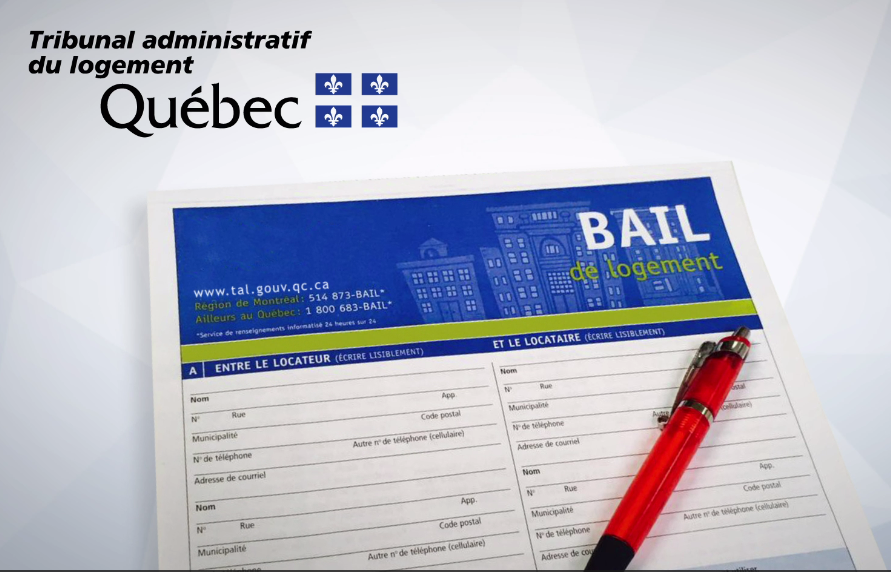Bill 31: What is it?
After more than eight months of intense debates, Bill 31 was passed last February (2024) in the National Assembly of Quebec. This adoption comes amidst a worsening housing crisis.
You have most likely heard about this new regulation on social media or in traditional media, but what exactly does it entail and will it really help resolve the housing crisis? First, let's take a look at the changes related to lease assignments and subletting.

Before Bill 31: Lease Assignment
Before February 21, 2024, if a tenant wanted to leave their accommodation before the end of their lease, they had to find a candidate to take over their lease. The owner only had the right to refuse this new person for serious reasons.
It must be understood that the main objective of the assignment was to allow a tenant to free itself from its obligations before certain circumstances compromise its ability to honor them.
However, the housing crisis changed the primary use of this right. Lease assignment then became an anti-inflationary measure aimed at controlling rent prices or obtaining a counterpart for a rental unit that is priced below the local market value, for example.
After Bill 31: Lease Assignment
Following its adoption, rules evolved to provide greater flexibility. From now on, if a tenant offers to transfer their lease and the owner refuses without serious reason, the lease can be terminated on the planned transfer date. This means that the tenant can release himself from his obligations without having to wait for the end of the lease, provided that the owner's refusal is not justified by serious reasons. If the owner has reason to believe that the candidate presents financial risks, for example, he can refuse the transfer in the same way as before the adoption of Bill 31.
The fear that tenants will knowingly present unsuitable candidates to force the landlord to release them from their obligations is therefore unfounded. In addition, a tenant who assigns his lease cannot ask for rent greater than the amount he pays to the owner, nor demand consideration for assigning his lease.
Before Bill 31: Subletting
Before the introduction of Bill 31, here is how subletting of more than 12 months was managed:
- Absence of Specific Notification:
Before Bill 31, there was no specific rule regarding the duration of subletting within the general regulatory framework. Tenants could sublet their accommodation according to the terms of their initial lease and the landlord's policies. - Consent of the Owner:
Subletting, whatever its duration, required the agreement of the owner. If a tenant sublet their accommodation for more than 12 months, they had to obtain approval from the landlord, who could refuse based on criteria specified in the lease or the law. - Contestation Process:
If an owner discovered that the subletting exceeded the authorized duration without his agreement, he could initiate a procedure to end the lease. The tenant then had to contest this decision before the Administrative Housing Tribunal to try to maintain his lease. - Risks for the Tenant:
If a tenant decided to sublet their apartment for an extended period without the explicit approval of the landlord, they risked legal consequences, including the possibility of losing their right to housing if the owner took legal action.
After Bill 31: Subletting
Under the new rules introduced, here is how subletting of more than 12 months is managed:
- Notification by the Landlord:
When a tenant has sublet his accommodation for more than 12 months, the landlord may decide not to renew the lease. If the owner makes this decision, he must inform the tenant. - Tenant's Response:
After receiving the notice of non-renewal of the lease, the tenant has one month to inform the owner if he wishes to contest the decision not to renew the lease or if he agrees to leave the premises. If he does not respond within this period, he is automatically considered to have refused to leave the accommodation. - Action by the Owner:
Following the tenant's refusal to leave the accommodation, the owner has one month to go to court to officially request the end of the lease. If the owner does not take this step, the lease will be automatically renewed under the previous conditions. - Court Decision and Rent Adjustment:
If the Court rejects the landlord's request to terminate the lease and this decision occurs after the expiration of the deadline for modifying the lease, the lease is renewed. However, the owner then has one month to ask the Court to set a new rent.
It is important to note that these new provisions do not apply to notices of non-renewal of lease sent before February 21, 2024. For these cases, the previous rules remain in force.
It can be complex to stay informed about all the subtleties of laws that are continually evolving in Quebec, especially when it comes to property management. This is why it is essential to surround yourself with professionals to effectively navigate these changes. If you are an owner and would like to delegate the management of your property, we are here to help you. Do not hesitate to contact us via our online form to find out how we can manage your property with expertise and professionalism.
Source : https://www.tal.gouv.qc.ca/PL31




